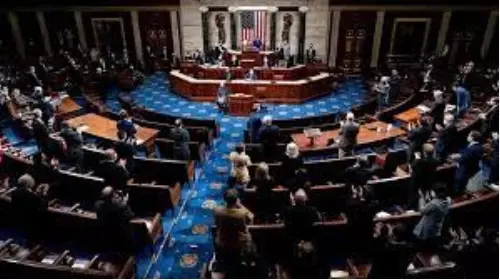
US Congress has 30 days to accept or reject India-drone deal: report
text_fieldsWashington: The Joe Biden administration has notified the US Congress on Thursday of the proposed sale of 31 MQ-9B HALE armed drones
The move has cleared a period of informal review that had raised concerns of the deal being in some kind of jeopardy.
Congress now has 30 days to either greenlight the deal by doing nothing, or reject it through a congressional vote. There is no attempt to put a "hold" on it yet, but as a person familiar with the development said, "The clock starts now."
The formal notification goes to the Speaker of the House of Representatives and the Chair of the Senate Foreign Relations Committee.
The notification by the US State Department's Defense Security Cooperation Agency has come amidst reports that some lawmakers had tried to link the deal’s clearance to India’s wholehearted cooperation with a US investigation into allegations that an Indian businessman Nikhil Gupta, tried to arrange a murder-for-hire hit on a US-based Khalistani activist. Gupta is in custody of Czech authorities in Prague on an extradition request from the US.
The $3 billion deal was announced by Prime Minister Narendra Modi and President Joe Biden in June 2023 along with joint production of GE jet engines in India. There were a slew of other announcements, but these two were clearly the most significant. The Sea Guardian deal, especially, had been in the making for several years with talks starting during President Donald Trump's administration.
Of the 31 MQ-9B UAVs, 15 Sea Guardians are meant for the Indian Navy, and eight each for the Indian Air Force and Indian Army. India is currently using two of these armed drones in a company-owned, company-operated lease agreement. These drones are being used by the US, the UK, France, Italy, the Netherlands, Spain, Belgium and Japan.
India is buying these drones in a government-to-government deal through a process called Foreign Military Sale (FMS), which must be cleared by congress after a statutory period of 15, 30 or 45 days, as the case may be depending on the size of the sale and the purchasing country. In this instance, Congress has 30 days.
Lawmakers can let the deal go through by doing nothing. But if they oppose it, they can either put a hold on it seeking further answers and guarantees from the Biden administration, the burden of which will probably fall on India. The "hold", if it happened, can be put only by the Chair and ranking members of the House's Foreign Affairs Committee, and the Armed Services Committee and the Senate's Foreign Relations Committee and the Armed Services Committee.
The "hold" can have a smothering impact on the deal, killing it eventually.
In 2016, the US Senate defeated a move to block the Obama administration's plans to sell F-16 fighter jets to Pakistan. However, Bob Corker, the then Chairman of the Senate Foreign Relations Committee, put a "hold" on US subsidy for the deal, which meant Pakistan would have to pay all of the $700 million, which it couldn't and deal failed.
IANS with edits























